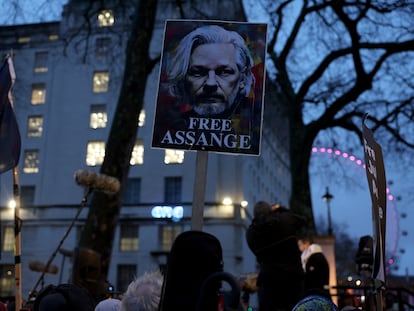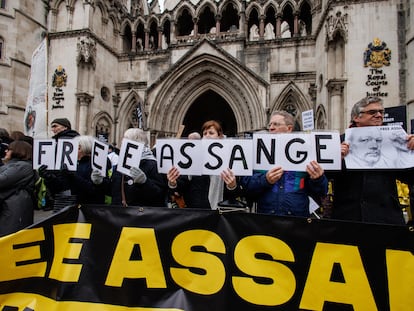Stella Assange: ‘This case has normalized intimidating journalists everywhere’
In an interview with EL PAÍS, Julian Assange’s wife expresses cautious optimism after the hearing in London on the U.S. request to extradite the WikiLeaks co-founder
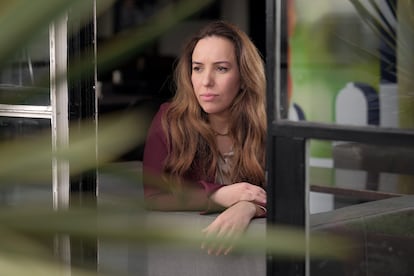

Stella Assange, 40, is tired, but if she speaks slowly it is because this lawyer specialized in humanitarian law carefully measures every word she says. She meets with EL PAÍS in the rooftop cafeteria of the Waterstone’s bookstore, in London’s Picadilly. Her 52-year-old husband Julian Assange, who is locked up in Belmarsh maximum-security prison, will call her during the course of the interview.
Stella (her previous surname was Moris) has two children with the WikiLeaks co-founder, aged five and six. They met 13 years ago, at the Ecuadorian Embassy in London where Assange lived for seven years. They got married inside prison, a little over a year ago.
After that long journey the world has begun to discover, during last week’s hearing in London to decide on his possible extradition to the United States, that the Assange case, above all, marks a key moment for press freedom.
Question. There were two intense days of trial, with the world closely watching. The two judges have taken a few weeks to decide on Assange’s possible extradition. Are you feeling optimistic?
Answer. I’m cautious about talking about optimism. But I went into it thinking, preparing for the worst, preparing for a decision on the second day and the possibility that Julian could be seized by the U.S. marshals. But about one hour into the proceedings on the first day, I thought that the judges were engaging, and were asking for information. And by the end of day one, it was clear that a decision would not be coming down the next day, because they wanted more information, because they were asking for clarifications.
Q. Many have been surprised by the international support for Assange.
A. I’ve seen it build. So I wasn’t surprised. I was hoping for this. And I think also the passage of time has made the true situation more immediately obvious. People are looking at this case.
Q. Did you speak to Assange after the trial? How does he feel?
A. He has mixed feelings. He’s encouraged by all the support. He can feel that the world is watching, and that’s protective. That’s the only hope, that the world will stop this.
Q. He could not be present in the room...
A. He’s very isolated at the moment. And he wasn’t able to come in. He wasn’t able to view the video link. He was calling his lawyers throughout. So he was following what was going on. He obviously had the arguments so he could follow. He knew what was going to be argued in court. And I saw him yesterday morning [February 23] with his brother. I gave him my genuine impression on the judges’ opinion.
Q. The defense team’s main argument is that Assange’s prosecution is “politically motivated.”
A. The content of the publications is in itself political because it exposes state criminality. This is the center of gravity of the case. Julian is being pursued, imprisoned, prosecuted, because of his political opinions.
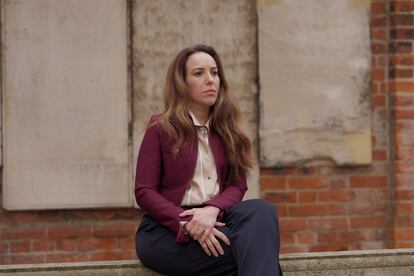
Q. And the United States intends to prosecute him with an archaic law, which has never before been used against journalistic acts.
A. The Espionage Act is a political offense, by definition. Any public international law textbook will use Espionage Act or espionage laws as a prime example of political offenses which are prohibited under Article 4 of the U.S.-U.K. extradition treaty.
Q. Assange is not even receiving protection under the U.S. Constitution’s provisions for the press.
A. They may argue that Julian, by virtue of not being American and being abroad, when the publication took place, is excluded from constitutional protections under the First Amendment [which includes, among other rights, freedom of the press]. So basically, an admission of discrimination on the basis of [his Australian] nationality. My reading is that they’re doing it to sell this indictment domestically with the American press. To send the message: “Don’t worry, it’s just Assange. He’s not American, if you’re American, it doesn’t affect you.”
Q. They also the question of whether Assange is a journalist.
A. In a way, it’s kind of irrelevant, because the specific activity that they’re describing as a crime is journalistic: receiving information from the source possessing it and communicating it.
Q. Is freedom of the press at stake in this case?
A. It is a crucial moment. For all its faults, the United States has been a reference point for freedom of speech and freedom of the press, even throughout the Cold War, when there was a high motivation to restrict the press. The Pentagon Papers basically forced the U.S. to end the Vietnam War.
Q. And has the persecution against Assange been a signal?
A. This case has normalized brutalizing and intimidating journalists everywhere. Geopolitically, it’s very useful for repressive governments to use it as an example. It normalizes it, it lowers the bar for everyone.
Q. The fight is now a legal one but, in reality, it has always been political. Have you had any contact with the British government?
A. I’ve tried to meet with Rishi Sunak, with James Cleverly, and I tried with the previous home secretary. They don’t want to meet with me. The UK says that it doesn’t view this as a press freedom case. I mean, what are they going to say? They hold conferences around the world about press freedom. Of course, they can’t acknowledge that this is a press freedom case.
Q. You have warned that Assange could die if he is extradited to the United States.
A. He could die because they could impose the death penalty. The British government itself has admitted that it is unable to guarantee that he will not be killed. And the United States has already tried to do it before [according to a Yahoo News report, which was never denied, the CIA planned Assange’s assassination]. Or he may die because he is subjected to prison conditions so brutal that they lead him to commit suicide.
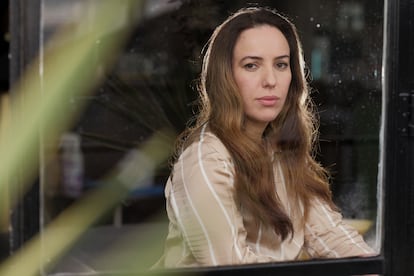
Q. Are you afraid that he might take his own life?
A. Julian has a history of trying to take his life when he was in his twenties. And he has clinical depression right now. Julian is a fighter. It’s not about Julian threatening to take his life. It’s about the conditions driving him to do it.
Q. What conclusions have you drawn from this intense week?
A. I believe that, until now, those pursuing Julian were willing to act against him as long as they were allowed to get away with it. I think we’re starting to see that they won’t be able to get away with this. All the lies have begun to be exposed. But I could be wrong, maybe I’m making a mistake and nothing will change.
Sign up for our weekly newsletter to get more English-language news coverage from EL PAÍS USA Edition
